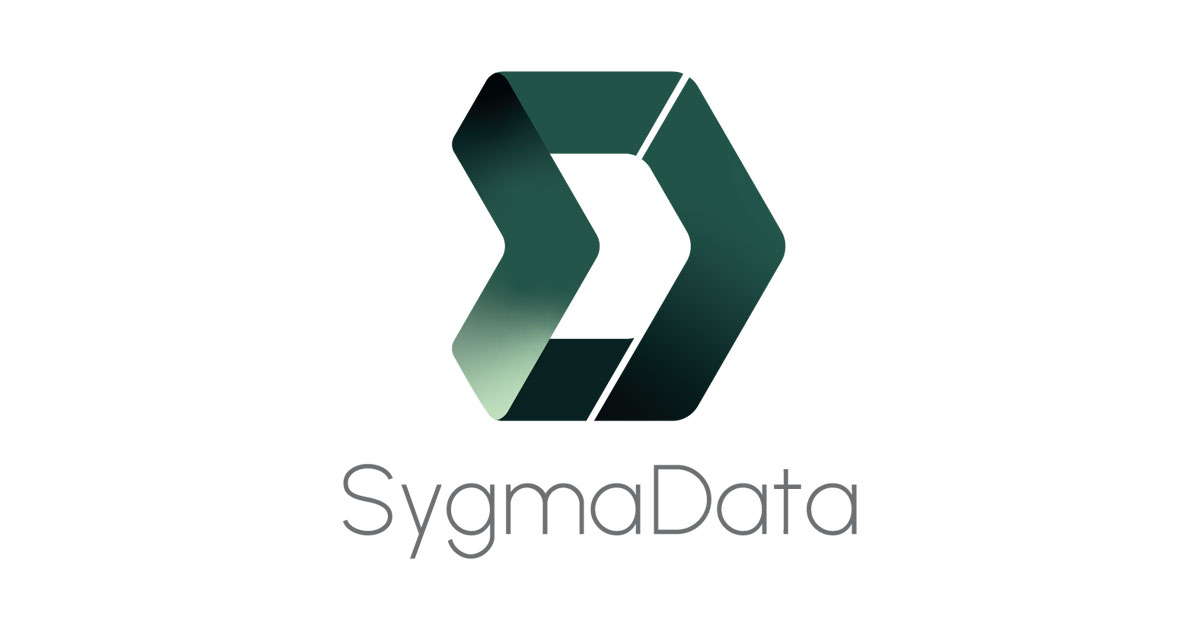Download the PDF document here: Main challenges of data management for Energy Operators
The main challenges of data management for DSO, Distribution System Operators
2025
Table of Contents
Ensuring Data Quality and Security. 5
Solutions for Effective Data Management 5
Challenges in Data Management for DSOs. 7
Impact of Challenges on DSO Operations. 9
Financial Implications of Poor Data Management 9
Regulatory Compliance and Risks. 9
Solutions and Best Practices. 11
Cross-Functional Collaboration. 11
Data Archiving and Retention Policies. 11
Leveraging Big Data Technologies. 11
Data Compression and Deduplication Techniques. 11
Ongoing Education and Training. 11
Holistic Standards-Based Approach. 12
Introduction to Challenges Faced by DSOs. 13
Governance Strategies and Their Impact 13
Unclear Policies and Procedures. 13
summary
Data management is a critical concern for Distribution System Operators (DSOs), who face significant challenges in navigating the complexities of modern energy systems. The rapid increase in data volumes generated by intelligent connected devices, alongside the demand for real-time analytics and integration of diverse data sources, presents considerable operational hurdles. These challenges can lead to high storage costs, inefficiencies, and compromised data quality, ultimately impacting the reliability and effectiveness of energy distribution services[1][2][3].
One of the primary obstacles for DSOs is the management of vast and complex datasets. As the electricity network incorporates more advanced technologies, DSOs must ensure that they can capture, process, and analyze high-frequency data necessary for predictive analytics, such as fault prediction. The integration of this data is often complicated by existing silos and outdated legacy systems, making it difficult to maintain a unified view and optimal operational efficiency[4][5][6].
Additionally, maintaining data quality and ensuring cybersecurity are paramount for effective decision-making and regulatory compliance. Poor data integrity can lead to inefficiencies and diminish customer trust, while the rise in cyber threats necessitates strong security measures during data collection and processing[4][7][8]. To overcome these challenges, DSOs are increasingly adopting scalable storage solutions and robust data governance strategies that facilitate better data management and operational performance[1][2][9].
Overall, addressing the challenges of data management is essential for DSOs to enhance their service delivery, improve customer satisfaction, and comply with regulatory requirements. The growing complexity of data landscapes demands innovative approaches and collaborative efforts across departments to create effective data management frameworks that meet the evolving needs of the energy sector[10][11-
Overview of Data Management
Data management is crucial for Distribution System Operators (DSOs) as they navigate the complexities of modern energy systems. The exponential growth of data volumes presents significant challenges, overwhelming existing data management systems. This leads to slow performance, high storage costs, and difficulties in maintaining data quality[1][2]. Moreover, the increasing demand for big data technologies and real-time processing complicates the management of large datasets, making it challenging to ensure data remains accessible and usable for analytics without compromising performance or security[1][3].
Key Challenges
Data Volume and Complexity
One of the primary challenges DSOs face is managing the sheer volume and complexity of data generated by intelligent connected devices within the electricity network. These devices require sophisticated hardware and configurations to capture high-resolution, high-frequency data necessary for predictive analytics, such as fault prediction[4][5]. As data continues to grow, integrating diverse data sources and maintaining consistent data quality becomes increasingly difficult[6].
Ensuring Data Quality and Security
Data quality is another critical concern. DSOs need reliable data that is safe to use, complete, and consistent[7]. The integrity of data impacts decision-making processes and operational efficiency. Additionally, cybersecurity risks must be mitigated during data collection, necessitating the use of strong encryption technologies to ensure secure communication[4][5].
Breaking Down Data Silos
Implementing effective data governance is essential for breaking down data silos across different business units. This collaborative process helps ensure that organized data is appropriately utilized and accurately entered into systems[7][8]. A robust data governance strategy facilitates clean auditing, evaluation, documentation, management, protection, and trustworthiness of data, ultimately leading to a single source of truth for decision-makers[8].
Solutions for Effective Data Management
To address these challenges, DSOs are increasingly adopting scalable storage solutions, such as cloud-based storage, which offer flexibility and scalability. This approach allows organizations to efficiently manage large data volumes and expand their storage capacity as needed without significant upfront investments[1][2]. By prioritizing data governance and leveraging advanced storage technologies, DSOs can enhance their data management practices and improve overall operational performance.
Challenges in Data Management for DSOs
Data management for Distribution System Operators (DSOs) faces several significant challenges that can impede operational efficiency and hinder the delivery of services to customers. These challenges arise from the complexities of data integration, data quality issues, and the management of large data volumes.
Data Integration
Data integration is a critical aspect of effective data management, yet DSOs often contend with multiple data sources that utilize different formats, structures, and technologies. This diversity complicates the integration process, making it time-consuming and prone to errors. Data silos, or isolated data storage systems, can further exacerbate these issues, preventing efficient data sharing across departments and leading to inefficiencies in decision-making and operational insights[10][11]. Moreover, the demand for real-time data integration requires advanced infrastructure capable of managing continuous data flows without causing latency or loss of information[12].
Data Quality
The accuracy and quality of data are fundamental to the success of master data management (MDM) systems. Inaccurate data can lead to poor decision-making, inefficiencies, and a loss of trust among users[9]. DSOs must contend with challenges related to poor data quality, which can stem from inconsistent data formats, legacy systems, and data duplication. Implementing robust data governance tools is essential for enforcing data policies, maintaining data quality, and ensuring compliance with regulatory standards[13].
Large Data Volumes
The exponential growth of data volumes presents another significant challenge for DSOs. As the amount of data generated continues to rise, existing data management systems may struggle to maintain performance, leading to high storage costs and difficulties in preserving data quality. The integration of big data technologies and the demands for real-time processing complicate these challenges further[9]. To effectively manage large data volumes, DSOs can benefit from scalable storage solutions, such as cloud-based systems, which allow for flexibility and the ability to expand capacity as needed[12][13].
Legacy Systems
Overcoming the limitations posed by legacy systems is also a pressing concern. Many DSOs rely on outdated technologies that do not support modern data management practices, making it difficult to integrate new data sources or utilize advanced analytical tools[11]. Incremental modernization through cloud solutions and modular architectures can help DSOs enhance their data management capabilities and scalability[13].
Customer-Centric Approach
Finally, adopting a more customer-centric approach requires effective data exchange processes between system operators and customers. This necessitates high levels of engagement and collaboration in European work streams focused on data access and interoperability, as highlighted in the E.DSO position paper[10][14]. By addressing these challenges, DSOs can improve their data management practices, ultimately enhancing service delivery and customer satisfaction.
Impact of Challenges on DSO Operations
Distribution System Operators (DSOs) face several challenges that significantly impact their operations, particularly in relation to data management. One of the foremost issues is the lack of operational efficiency, which can lead to supply chain bottlenecks and hinder effective data utilization[15][16]. When operational processes are not streamlined, the inefficiencies can not only affect cash flow but also compromise the overall performance of the DSO, making it difficult to meet customer expectations and regulatory requirements.
Financial Implications of Poor Data Management
A high Days Sales Outstanding (DSO) can have detrimental effects on a firm’s financial health. Extended payment terms, while potentially attracting customers, can result in strained cash flow, limiting a company’s growth potential[17][18]. Furthermore, a consistently high DSO is often perceived by lenders and investors as a sign of poor cash management, which can damage a firm’s reputation and hinder future investment opportunities[19]. This can create a vicious cycle where operational inefficiencies lead to higher DSO, further restricting financial resources.
Data Quality Challenges
Another critical challenge in DSO operations is the management of data quality. Poor data quality can severely undermine operational efficiency and customer service. For example, ineffective data governance can result in duplicate records and a lack of a comprehensive 360-degree view of customers, which is essential for personalized marketing and service[20][21]. The inability to maintain high-quality, consistent data records can lower customer satisfaction and increase operational costs, ultimately affecting the DSO’s bottom line[22][23].
Regulatory Compliance and Risks
Failing to manage data effectively can also expose DSOs to regulatory risks. Non-compliance with applicable regulations can lead to hefty penalties and legal consequences, tarnishing the organization’s reputation and financial stability[24]. Moreover, the stakes are heightened when sensitive data is compromised, as this not only incurs costs but also damages customer trust and can result in lawsuits[24][25].
Resource Constraints
Lastly, budget and resource constraints further complicate the data management landscape for DSOs. Even with stakeholder support, the lack of sufficient investment in tools, technologies, and skilled personnel can limit the effectiveness of data governance strategies[26][25]. This inadequacy can lead to a significant risk of data downtime and inefficiencies that negatively impact revenue and operational performance[27][28].
Solutions and Best Practices
Cross-Functional Collaboration
Establishing cross-functional teams is essential for overcoming the challenges posed by siloed data and differing departmental priorities. These teams should comprise members from IT, business units, and data governance to promote better communication and collaboration. By working together, stakeholders can develop and implement data management strategies that address the needs of all parties involved, leading to improved data integrity and usability across the organization[29][30].
Data Archiving and Retention Policies
Clear data archiving and retention policies can help manage the growth of Big Data by identifying and archiving infrequently accessed information. This approach reduces the burden on primary storage systems and ensures that critical data remains accessible. By effectively managing the lifecycle of data, organizations can optimize their storage resources and maintain data quality[31][29].
Leveraging Big Data Technologies
Utilizing advanced big data technologies, such as Hadoop and Spark, enables organizations to process and analyze large datasets efficiently. These technologies are designed to handle vast amounts of data, facilitating real-time analytics and improved decision-making. By leveraging these tools, Distribution System Operators (DSOs) can enhance their ability to extract valuable insights from their data[31][29][4].
Data Compression and Deduplication Techniques
Implementing data compression and deduplication techniques can significantly reduce storage requirements, minimize redundant data, and optimize storage space.
This leads to cost savings and improved performance. By adopting these practices, DSOs can manage their data more effectively and ensure that storage systems operate efficiently[31][29].
Ongoing Education and Training
Implementing ongoing education initiatives helps keep personnel updated with new features and best practices in data management. Regular workshops, webinars, and refresher courses can reinforce knowledge and address any gaps that arise over time. Additionally, tailoring training programs to users’ roles ensures that each team member receives relevant and practical information, thereby enhancing overall data management capabilities[4][32].
Holistic Standards-Based Approach
A holistic, standards-based approach to grid modernization and data management is essential for DSOs. This approach emphasizes the adoption of common standards, such as the Common Information Model (CIM), which helps to harmonize data management practices across the industry. By adhering to established standards, organizations can protect their investments and ensure that they derive maximum value from their data assets[31][33][4].
Case Studies
Introduction to Challenges Faced by DSOs
Distribution System Operators (DSOs) are increasingly confronted with a range of data management challenges that can impact their efficiency and effectiveness. These challenges are often exacerbated by the lack of a comprehensive governance strategy, which can lead to significant operational risks and data issues[9][34].
Governance Strategies and Their Impact
A critical aspect for DSOs is the implementation of a robust data governance strategy. The absence of such a strategy can result in increased operational overhead, data errors, and integration issues, ultimately compromising data integrity and compliance[9][34]. For instance, DSOs must communicate the importance of governance to leadership, emphasizing that the costs associated with poor data management may far exceed the investments required to implement effective governance practices[9].
Unclear Policies and Procedures
Another major challenge involves unclear policies and procedures. Effective data governance relies on well-defined policies that are accessible and understandable to all stakeholders involved with data management. Unfortunately, many DSOs find that their policies are not thoroughly planned, documented, or disseminated, leaving data owners and users confused or misinformed about proper protocols[9][34]. This lack of clarity can lead to inconsistent practices, further complicating data management efforts[9][35].
Position Paper Insights
Insights from the E.DSO data management working group provide a valuable perspective on the issues faced by DSOs. Their position paper titled “Facilitating customers energy data management and interoperability – DSOs’ perspective” highlights the importance of effective data management in operating distribution systems flexibly and responsively[36][37]. The paper underscores the responsibilities of DSOs as outlined in the Electricity Directive, emphasizing the need for improved cooperation with Transmission System Operators (TSOs) and third parties to enhance data exchange and interoperability[36][38].
Customer-Centric Approach
Adopting a customer-centric approach is increasingly recognized as essential for DSOs. The paper stresses the importance of engaging with customers and other stakeholders to create a more collaborative environment for data management. This engagement is vital for DSOs as they work to adapt their operations in a manner that meets customer needs and enhances overall system reliability[36][39].
References
[1]: What are the challenges of data management? – Quora
[2]: [PDF] Distribution System Operator (DSO) Models for Utility Stakeholders
[3]: Top Master Data Management Challenges and Practical Solutions
[4]: Solving data challenges to accelerate the energy transition
[5]: New challenges for DSOs in the energy transition
[6]: Data Governance & Data Management: Case Studies of Select …
[7]: Data governance strategy for energy’s future | EY – US
[8]: Data Governance Examples: Insights & Case Studies for 2025 – Atlan
[9]: [PDF] Future role of distribution system operators – IRENA
[10]: Grid operators: TSO and DSO explained – gridX
[11]: Top 7 Data Integration Challenges and Solutions – DCKAP
[12]: The Big Data Problem For Utilities | Camus Energy
[13]: [PDF] UNBUNDLING OF DISTRIBUTION SYSTEM OPERATORS
[14]: [PDF] Applying the Grid Model Data Management (GMDM) Information …
[15]: 10+ Data Governance Case Studies: Real-Life Examples
[16]: Empowering DSOs – The Lead Magazine
[17]: The new frontier in DSO management – The CFO
[18]: 7 Strategies to Reduce DSO & Improve Cashflow – Esker
[19]: Top 10 Strategies for Reducing Days Sales Outstanding (DSO)
[20]: [PDF] Facilitating customers energy data management and interoperability
[21]: Distributed Data Management – Dremio
[22]: Bad data is costing your utility and undermining efficiency – West …
[23]: Investments in data quality: Evaluating impacts of faulty data on …
[24]: Facilitating customers energy data management and interoperability
[25]: Data Value in Distribution System Operations – arXiv
[26]: Data management crucial to system operation – E.DSO white paper
[27]: Top 5 challenges facing distribution utilities in 2023 | Utility Dive
[28]: What are the challenges that Distribution System Operators (DSOs …
[29]: Demonstrating Data Analytics for Transmission and Distribution …
[30]: How distribution system operators face smart grid challenges
[31]: [PDF] TSO – DSO DATA MANAGEMENT REPORT – ENTSO-e
[32]: [PDF] Summary Results of Electricity Distribution System Challenges and ...
[33]: Open Energy Data — A regulatory framework proposal under the …
[34]: Data Management | Distribution Network Operators – Camlin Group
[35]: The Impact of Data Quality on Supply Chain Performance – LinkedIn
[36]: [PDF] Cybersecurity Baselines for Electric Distribution Systems and DERs
[37]: [PDF] Guidelines for Implementing Advanced Distribution Management …
[38]: Will Data Management in Operational Technology Be Standardized
[39]: Distribution Control Center 2.0 – EPRI Journal



